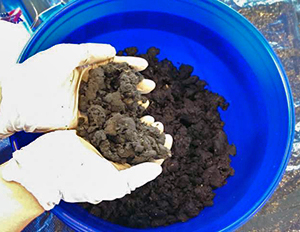Washington, May 21: US President Donald Trump China is on a "massive disinformation" campaign and is desperately trying to deflect the "pain and carnage" that it spread throughout the world, US President Donald Trump has said, upping the ante on Beijing over its handling of the coronavirus outbreak.
Trump, who has expressed disappointment over China's handling of the COVID-19 pandemic, claimed that it was the "incompetence" of Beijing that led to the mass killing across the globe.
"China is on a massive disinformation campaign because they are desperate to have Sleepy Joe Biden win the presidential race so they can continue to rip-off the United States, as they have done for decades, until I came along!" Trump said in a tweet on Wednesday.
"Spokesman speaks stupidly on behalf of China, trying desperately to deflect the pain and carnage that their country spread throughout the world. Its disinformation and propaganda attack on the United States and Europe is a disgrace… It all comes from the top. They could have easily stopped the plague, but they didn't," he said in a series of tweets.
Trump blamed China for spreading the coronavirus globally and accused it of being incompetent.
"Some wacko in China just released a statement blaming everybody other than China for the Virus which has now killed hundreds of thousands of people. Please explain to this dope that it was the 'incompetence of China', and nothing else, that did this mass Worldwide killing!" Trump said.
China has denied covering up the extent of its coronavirus outbreak and accused the US of attempting to divert public attention by insinuating that the virus originated from a virology laboratory in Wuhan.
"China was the first country to report the COVID-19 to the World Health Organisation (WHO), (and) that doesn't mean the virus originated from Wuhan... There has never been any concealment, and we'll never allow any concealment," Chinese Foreign Ministry spokesman Zhao Lijian said last month.
"A discerning person will understand at a glance that the purpose is to create confusion, divert public attention, and shirk their responsibility," he said.
The novel coronavirus which first originated in Wuhan in December last year has claimed 328,120 lives and infected nearly 5 million people globally. The Us is the worst affected country with 93,439 deaths and over 1.5 million infections, according to Johns Hopkins University data.
Meanwhile, the US Senate passed a bill boosting oversight of companies based in China and other nations that could lead to their removal from American stock exchanges.
The Holding Foreign Companies Accountable Act, proposes to increase oversight of Chinese and other foreign companies listed on American exchanges and delist and ban over-the-counter trading for firms that are out of compliance with US regulators for a period of three years.
In a related development, a group of top Republican Senators led by Marco Rubio sent a letter to Secretary of the Treasury Steven Mnuchin following disturbing reports that China's state-owned and-directed enterprises were looking to exploit the economic crisis by buying US and foreign companies.
As companies backed by the Chinese Communist Party (CCP) approach banks to identify the purchase of companies in the US and in Europe affected by the pandemic, the senators urged Mnuchin to protect against the China's and the CCP's predatory economic behaviour during the COVID-19 crisis.
"We write to express our concerns related to the People's Republic of China's (PRC) efforts to exploit the economic crisis wrought by the COVID-19 pandemic to gain control of distressed companies or shirking its international responsibilities amidst a worldwide crisis.
"In both Chinese Communist Party (CCP) and PRC policy documents, Beijing has made no secret of its intentions to dominate strategic industrial and emerging technology sectors as well as influence standards at the expense of liberal, rules-based governance," wrote the senators.
As the crisis reverberates across the globe, the PRC's predatory lending practices — including the use of non-disclosure agreements for bilateral loans — not only damage the fiscal situation of recipient countries but also undermine the international community's ability to respond effectively to the crisis, they said.
"Without US and international pressure for accountability and transparency, those countries that are in debt to the PRC will not have the political cover or protection to open their financial books. Such countries will face the risk of default or a currency crisis, leaving the International Monetary Fund (IMF), World Bank, and Western countries to clean up the PRC's mess," the senators said.
During a campaign round table Katrina Pierson, Senior Advisor to the Trump 2020 Campaign, said that only the US President will defeat the coronavirus, hold China accountable for their negligence, and defend the American people from socialism.





Comments
Add new comment